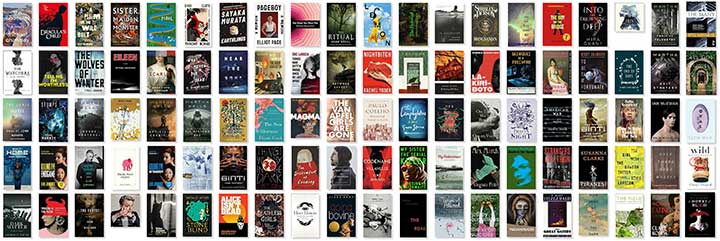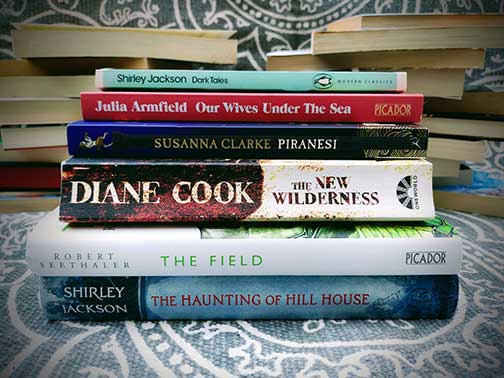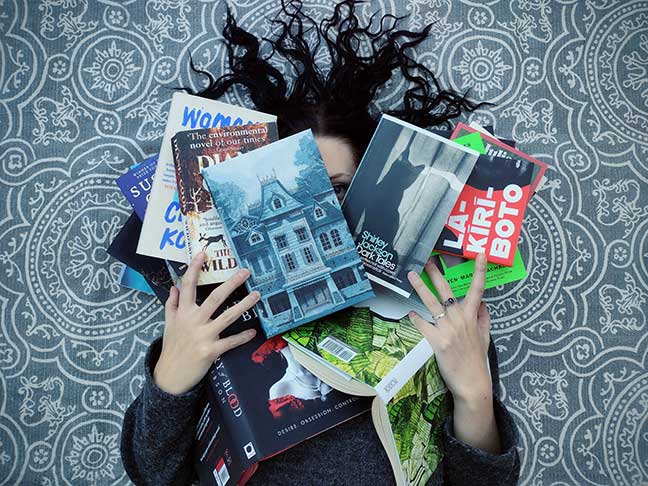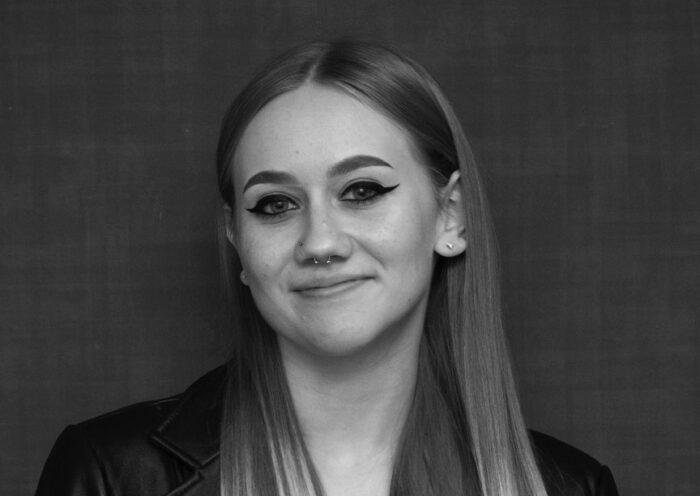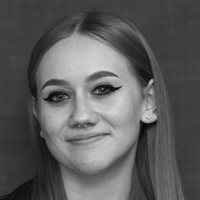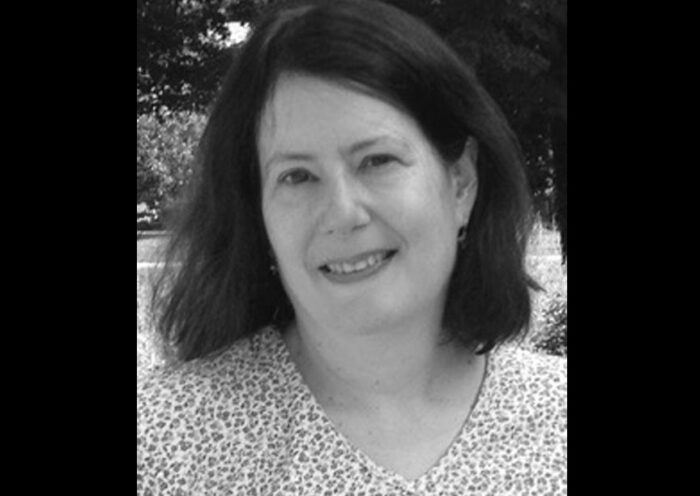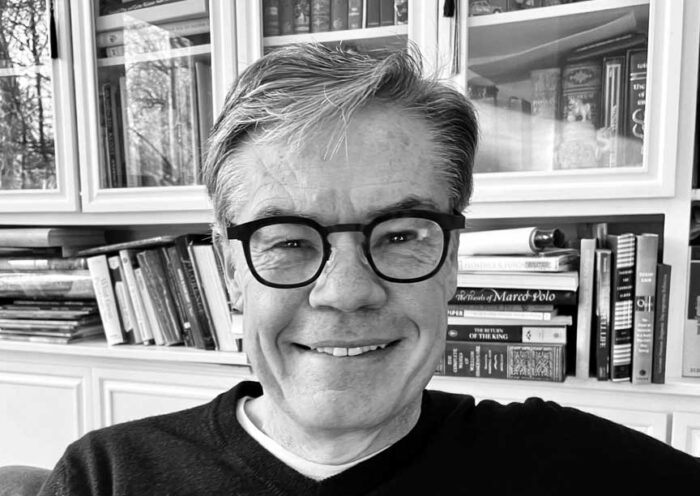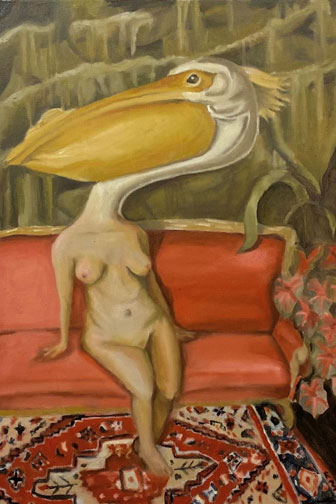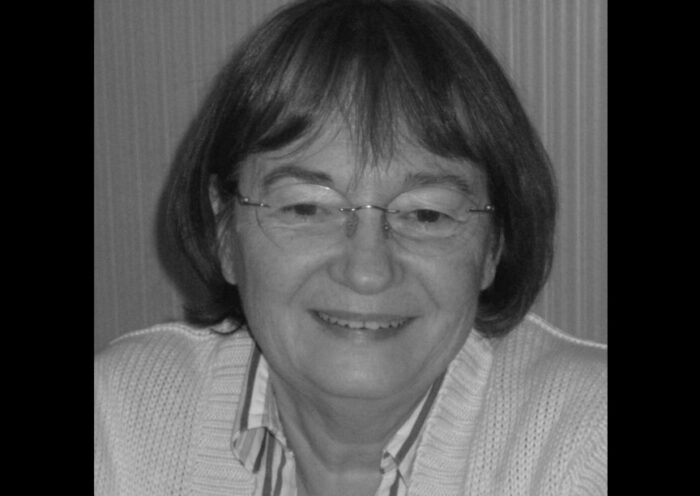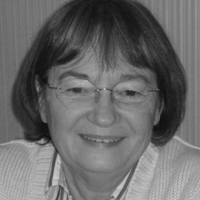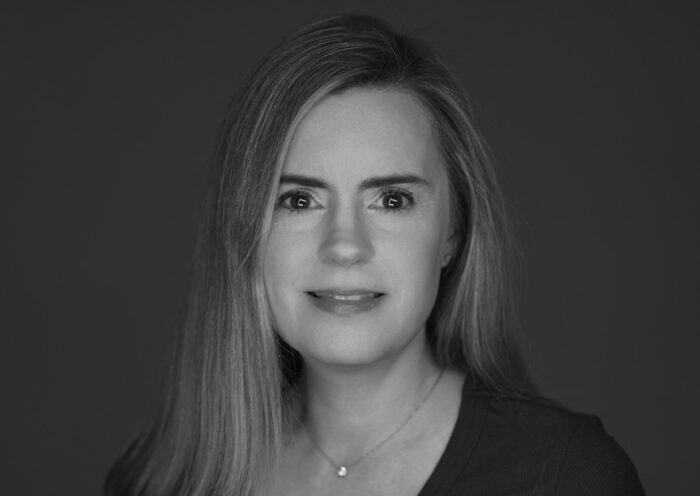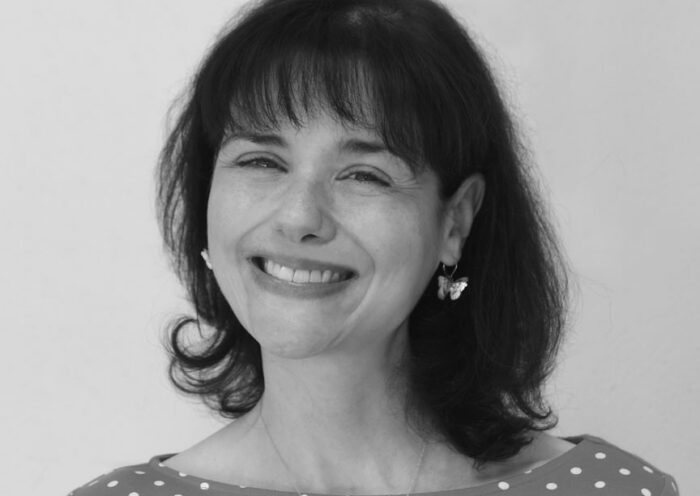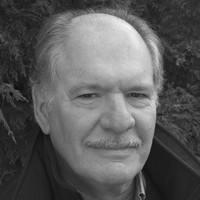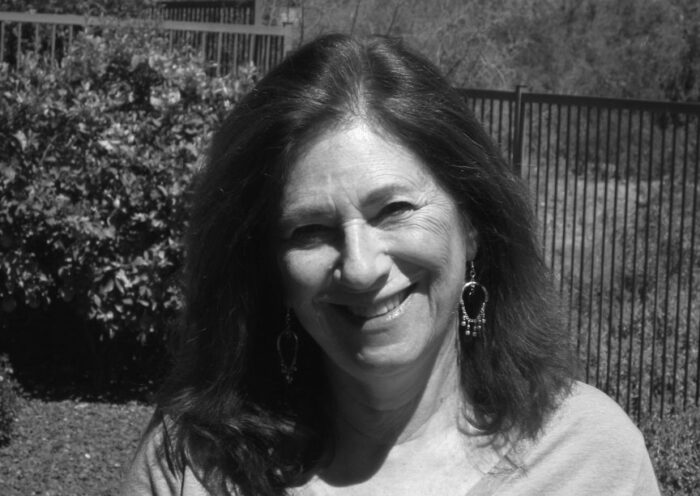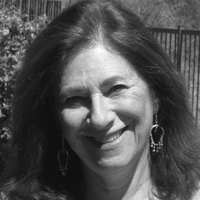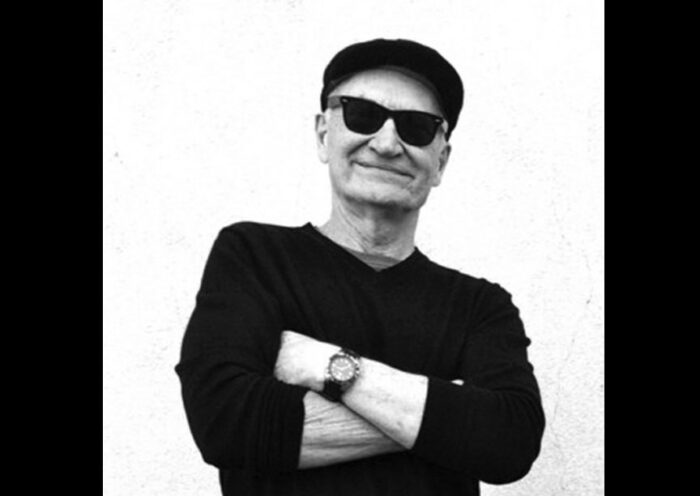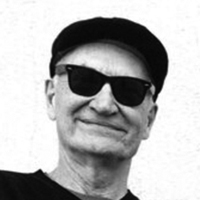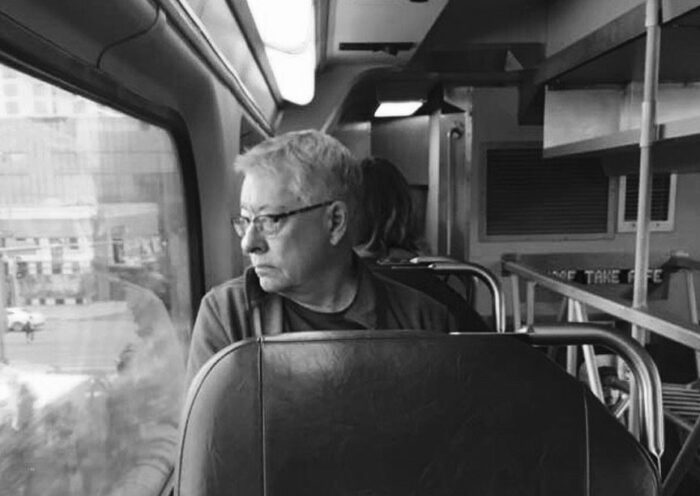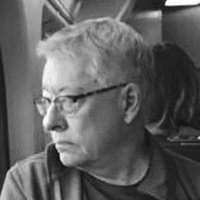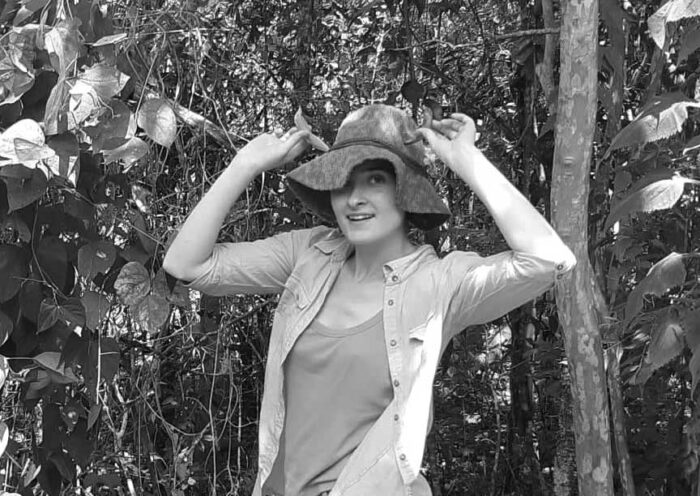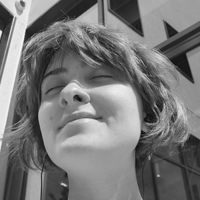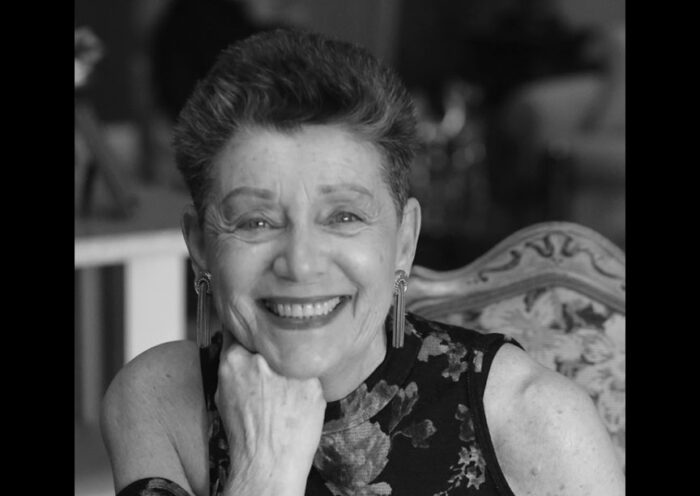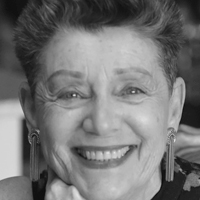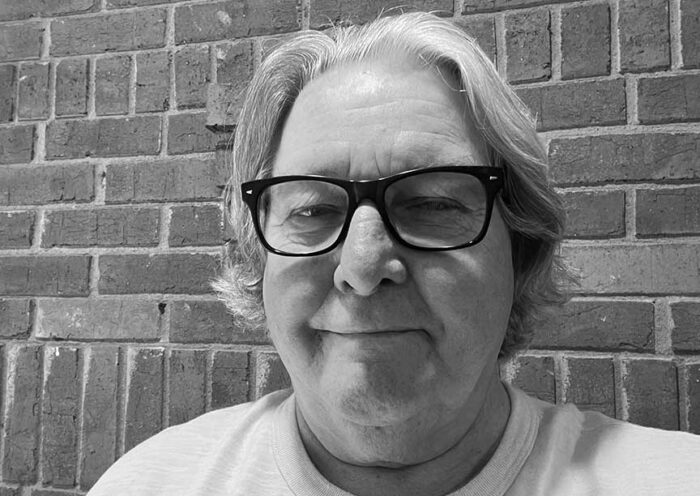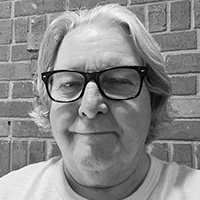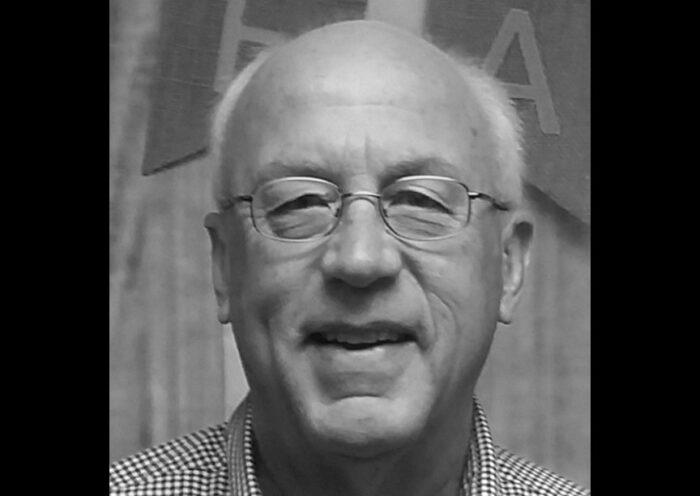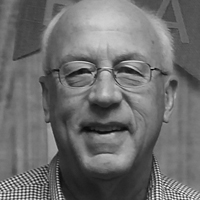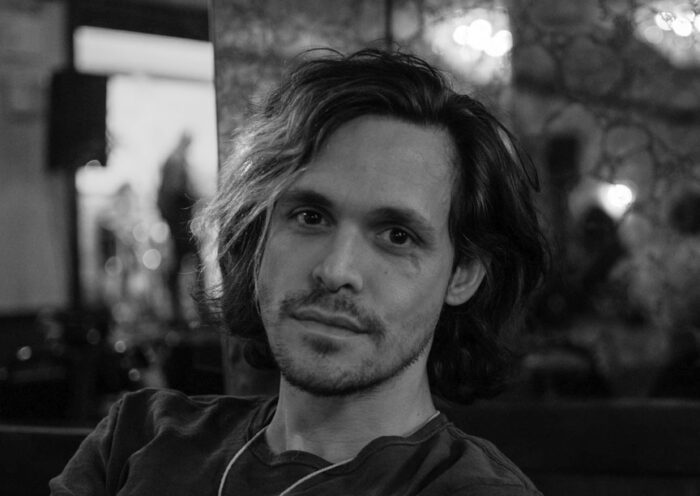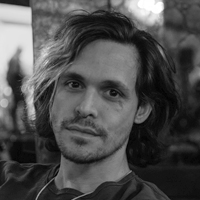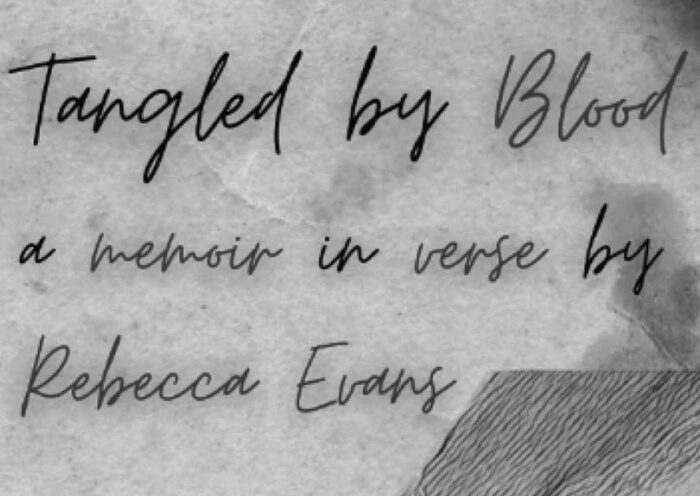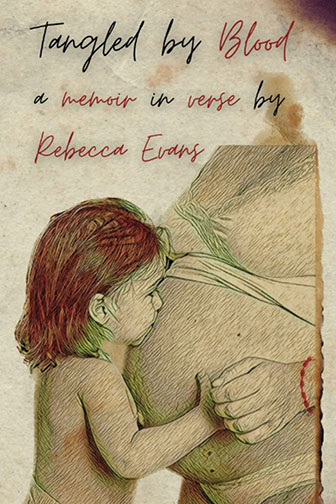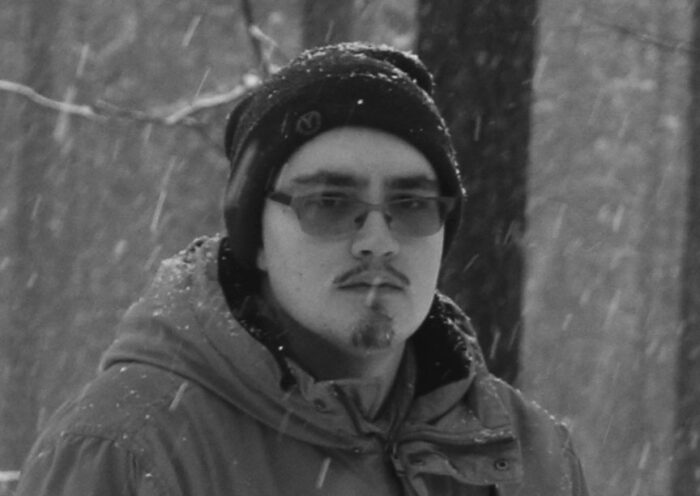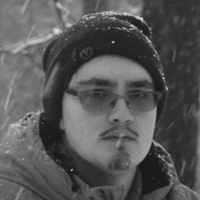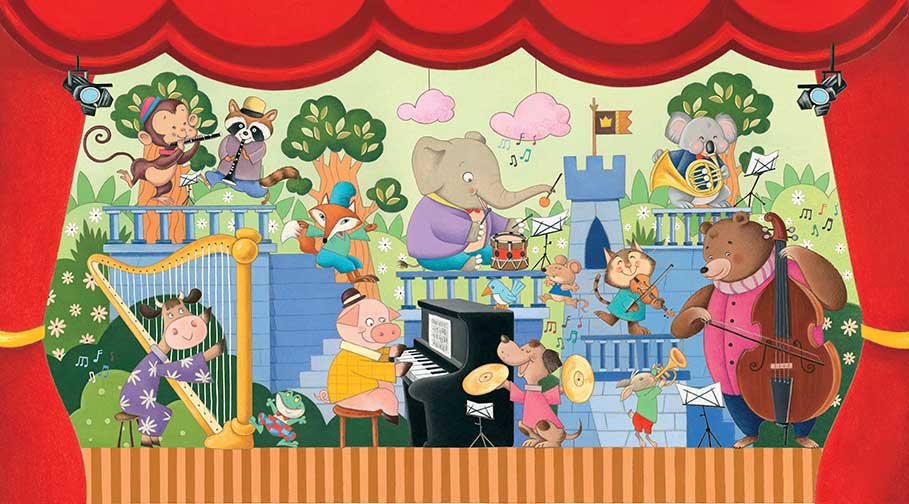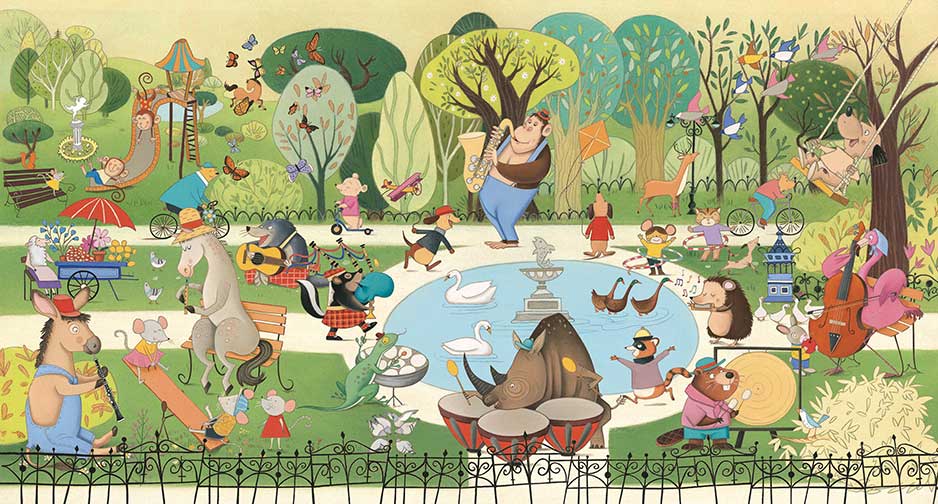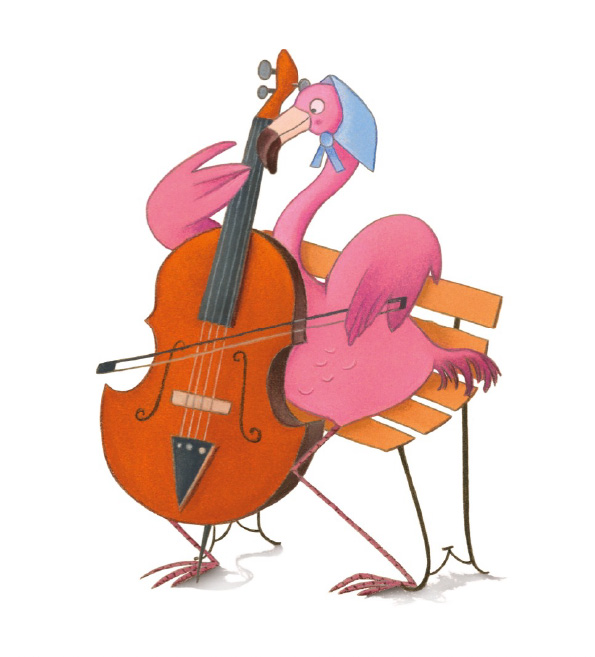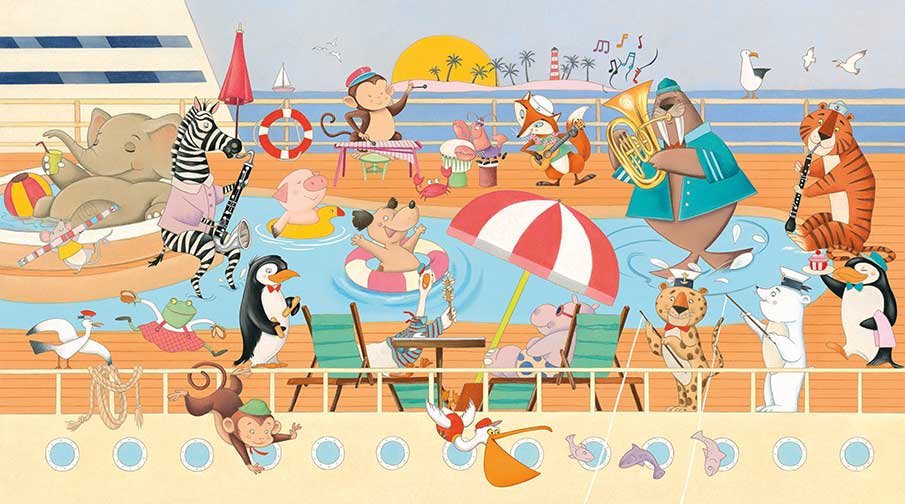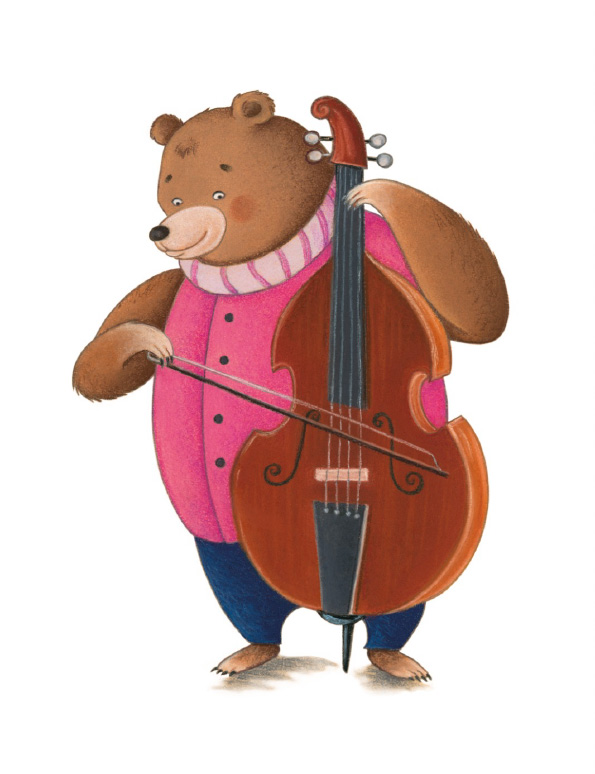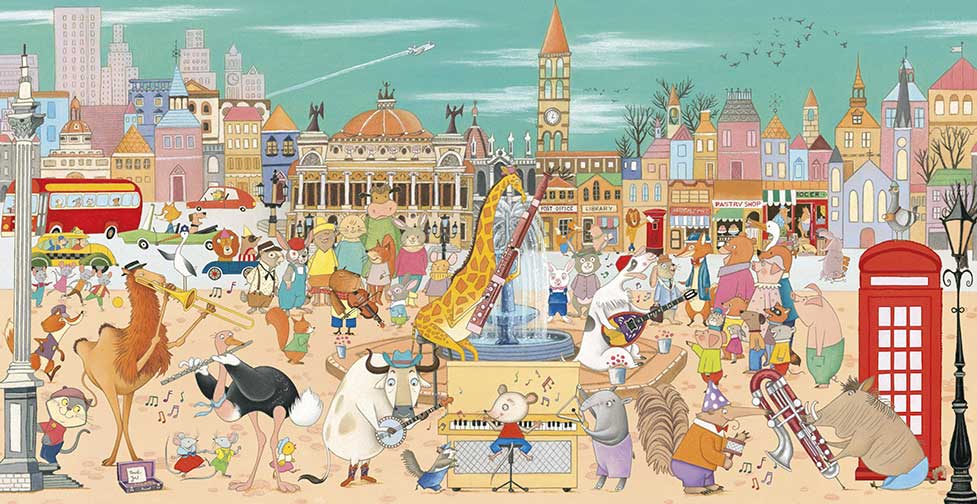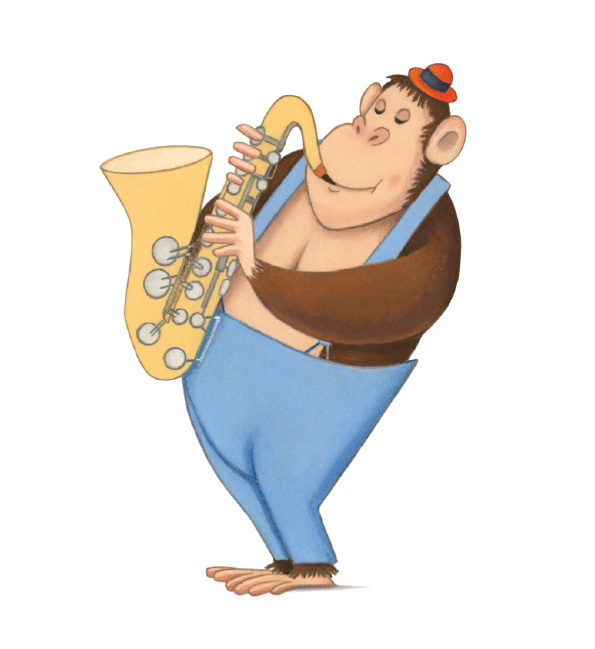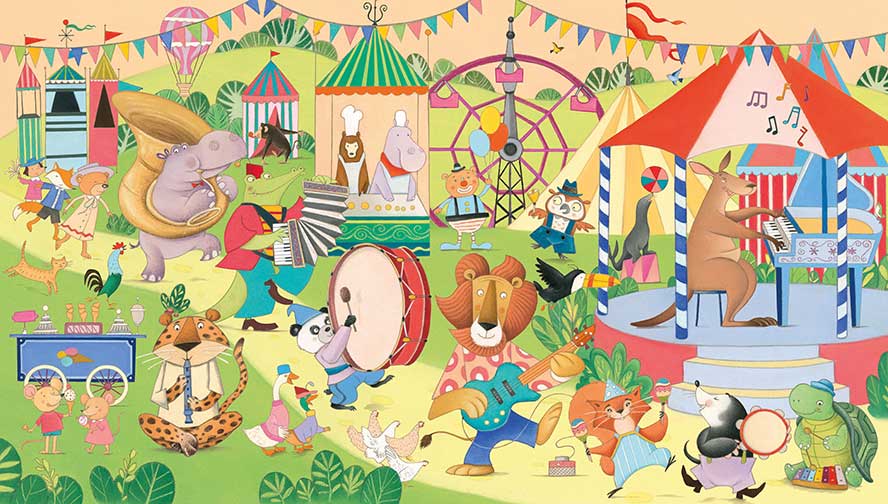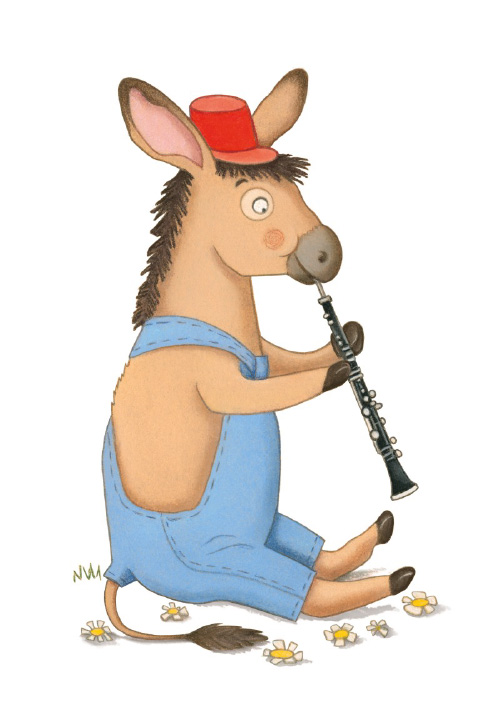Dad Stuff
by Toni Kochensparger
All of the dads on the block bought different fireworks.
The ritual had gone on for years: each Independence Day, the ten or twelve families who lived on California Avenue shuffled through a line of backyards, watching explosions. With the exception of two different rivalries (otherwise represented in the landscaping of their respective front yards), the natural competition resulting from each house’s decadent destruction was basically harmless. Each year, the neighborhood kids all voted on a favorite and the winning house received a lawn ornament, shaped like Uncle Sam, to be displayed, during the intervening period.
“Todd’s really fucking up this year,” Tevin’s dad whispered. “It’s going to take him forever to keep the sequence going.”
Tevin grinned at his dad. Cursing was what they did in secret, when his stepmom was out-of-earshot. He glanced over at her–at Kathy–who was giving Greg Gerolski’s mom (notorious for over-politeness) what looked like the ear-beating of the century, likely regarding her latest collection, a series of ceramic bird statues from Hallmark which currently clustered the house like gnats and which Tevin’s dad had privately told him, on multiple occasions, were the absolute bane of his existence.
“He should have just built out the launchpad,” Tevin’s dad whispered, “instead of lighting them all, one-by-one.”
“Fuckin’ A,” Tevin whispered. The two of them grinned at each other, then turned back to the sky, full of gunpowder.
*
“She looks smug, doesn’t she? She looks smug.” Kathy had been standing at the living room window for the last hour, peering through the blinds while Bonnie McArthur (Tommy’s mom) trimmed the hedges on either side of Uncle Sam.
Kathy’s rivalry with Bonnie was a secret from Bonnie, who thought they were friendly. Tevin’s dad had stopped Kathy, on multiple occasions, from sneaking across the street in the dead of night to pour bleach in Bonnie’s flowerbed.
Kathy often became manic, in the evening time, a psychosis most often represented by a complete rearrangement of the birds, which she splayed all over the living room, a habit Tevin’s dad had told him, privately, was a manifestation of Kathy’s need for personal space, which she wouldn’t meet, otherwise. She was almost always in the same room as Tevin’s dad, a cause for concern, early in their marriage, on Tevin’s part, because there are some things about growing up that you can really only talk about with your father. In addition to emanating hysteria, the clusterfuck of ceramics meant the path through the living room was completely blocked off, which meant taking the long way, through the kitchen and den, to get anywhere. The whole thing was a nightmare for everyone involved.
“I don’t understand why she can’t get the fucking things herself,” Tevin told his dad, in the car, a few days after the firework crawl.
“Language,” said his dad, in his best imitation of Kathy. They both laughed. His dad turned onto Indian Ripple. “I figure this gets us out of the house for a while,” he said. “I figure, we try to find this stupid thing she wants, fast, and then we go somewhere and have some fun. If she asks, we’ll just tell her we had to drive to the Hallmark in Springboro to find the goddamn thing.”
“You’ll probably score some points cussa that,” said Tevin. “Maybe she’ll fuck you.”
“God willing,” his dad said. “There’s been a draught on the level with Grapes of Wrath. Your dad’s getting rusty.”
“Mr. Crawford told us, in Sex Ed, that we should use lotion,” said Tevin. “It shouldn’t be rusty.”
“That’s good,” his dad said. “That was quick.”
Tevin smiled. His dad had always been brutally honest, when it came to jokes. When Tevin was still in the knock-knock stage, and trying to come up with his own, his dad would always point out whenever they didn’t make sense and make him try again, a practice that used to drive Tevin’s mom crazy (“You’re not Lorne Michaels,” he heard her say to his dad one time, “and your son is six.”)
After they had retrieved what they both prayed was the correct ceramic bird, Tevin’s dad drove them to Maverick’s, the comic book shop they’d been visiting since Tevin was too-young to read. He was always allowed to pick out two single issues, which evolved over the years from the little kid books, like Roger Rabbit, to more advanced series, currently a run of Superman Tevin liked which was, admittedly, ridiculous (in the current arc, Superman had become electric and had an evil twin), but still fun to talk about. When he was little, his dad would read the comics to him, with Tevin on his lap, looking at the pictures, telling a kind of PG-version of what was happening in the story. Now, they both read their respective periodicals of choice and then traded off. It was a seamless transition: by the time Tevin started actually reading his dad’s selections, he was fully caught up on the narratives, which were frequently much more graphic than the versions his dad used to tell him, often morbidly so.
“Hey John,” Tevin’s dad said to the owner, as they made their way into the store.
“Got ‘em right here,” said John, who had Tevin’s dad’s weekly picks in a stack on the counter (you could sign up to have each month’s issues of whatever you were reading set aside). “Saw you two park the Camry.”
Tevin wandered through the store while the two men caught up. The shop—like all comic book stores—was like being inside a kaleidoscope, this little explosion of color all around you: illustrations, posters, statues, game pieces, action figures, and trading cards. The first time Tevin visited, he thought the place looked like when you walked through the gates of a carnival.
“So how is it?” Tevin’s dad asked. Tevin always started reading as soon as they got in the car.
“It’s not very subtle,” said Tevin. He had learned about the concept of subtlety the previous week and was using it to describe everything he could, most frequently Kathy. “Superman goes back home to show his parents what he looks like, now. He just used his powers to draw the logo on his chest.”
“Is changing his appearance one of his powers?” his dad asked, signaling a left. “What are the rules of this world?”
“The whole thing’s pretty stupid, so far,” Tevin said. “Like: I still don’t really get why an electric Superman is any different than a normal Superman.”
“You just said it’s because he has different powers.”
“Yeah, but he was already Superman,” said Tevin. “He basically already had all the powers there are.”
“Fair point,” his dad said. “Superman’s hard to make interesting.”
“He’s interesting,” said Tevin. “He’s Superman.”
“Right,” said his dad. “That’s the problem. I mean, he can do basically anything. He’s like Sherlock Holmes.”
“Sherlock Holmes doesn’t have powers.”
“No, but Sherlock Holmes is, like…a genius, right?”
“Right,” said Tevin.
“Not even that: he’s not even just a genius, he’s like…the smartest man who ever lived. He can solve anything.”
“Okay, but he’s still not a superhero.”
“That’s not my point. My point is that if Sherlock Holmes can literally solve any mystery, what’s the point of a story where he’s got to solve a mystery? Like, he’s always going to figure it out.”
Tevin thought for a moment. “If Superman has the most, like…the strongest powers, what’s the point of attacking him with a bad guy?”
“Exactly,” said his dad. “He literally can’t be killed.”
“I thought he was killed,” said Tevin. “Don’t you have that one, like…that special edition with the box in the garage?”
“They didn’t even kill him in that,” his dad said. “He comes back to life in the second volume. Not comes back to life, I mean: he was never fully dead, in the first place. And the thing they got to “kill” him was just some random monster. It’s a real shit show.”
“What about kryptonite?” asked Tevin.
“Kryptonite’s dumb as hell, too,” his dad said. They were almost home. “Kryptonite just weakens him. He needs to have, like…alien leukemia, or something. There needs to be something that can actually cause him to die.”
They turned onto California Avenue and parked in their driveway, where they tucked the comic books under the seats and double-checked that nothing had happened to the bird, during transport.
*
Kathy was in another one of her moods. “Tevin, I need you to dust the shelves before we add the blue jay,” she said, holding the bird. She almost always referenced her collection with a royal we, which Tevin quickly discerned indicated collective responsibility, rather than ownership.
“I’ve got homework,” Tevin said, clearing his dinner plate. “I’ve got math.”
“You’re great at math,” said Kathy. She turned to Tevin’s dad. “Isn’t he great at math?” She turned back to Tevin. “Come on, it’ll take you five minutes to do your homework. The dusting will barely take that long. Then you’ll have the rest of the night to goof around.”
The last time Tevin was assigned to dust the bird shelves, it took forty-five minutes.
“Remember: you have to pick up all the birds as you go,” Kathy said, getting a rag and spray can for Tevin. “You can’t just dust around them, or they’ll break.”
Tevin knew better than to argue. He and his dad had learned that lesson early on, in the marriage. Back then, Kathy was collecting Beanie Babies which were, it turned out, absolutely worth driving to multiple stores for, even if Tevin’s cartoons were on next.
“Well, we need to find out more, before we do anything,” Kathy was telling Tevin’s dad, in the next room, as Tevin picked up bird after bird in her collection. He imagined them chirping, like real birds, an internal sound he strained to turn up, as Kathy talked. She had a voice like The Nanny, but worse.
He couldn’t understand the point of collecting anything that wasn’t comics. His dad couldn’t either—a conversation the two of them had had, one of the first time he took his son to Mavericks:
“But I don’t want a book. I can’t even read,” Tevin had told him, holding an action figure.
His dad then explained something that stuck with Tevin—a moment Tevin would later grow up to define as a core memory:
“Look: first of all, you have way too many toys. But that’s not why I’m saying No. I’m saying No because the difference between buying one of the comic books and buying an action figure is that each comic book is a container for a story.” He paused, then kneeled down to get on Tevin’s level. “Here’s the thing: for the rest of your life, as long as you’re a person, what’s the first thing you have to do, every morning?”
“Poop.”
“No, before that.”
“Oh…” Tevin thought for a second. “Wake up?”
“After you wake up. What’s the first thing you have to do, to begin your day?”
“…get out of bed?”
“Exactly,” said Tevin’s dad. “That’s the first thing you have to do. That’s the first thing we all have to do.”
“Dad, what are you talking about?”
“I’m talking about curiosity,” his dad said. Of all the moments in their whole conversation, this was the one where the image was the clearest, in Tevin’s mind.
“Curiosity?”
“Curiosity is what actually gets you out of bed. It’s what gets me out of bed. And the same goes for everybody,” said his dad. “Even if it’s just to see what happens when you try to take a shit: the thing that makes your body physically get up and start your day is when some part of you wonders what’s going to happen next.”
All around them, surrounding his dad’s speech, was the carnival of the comics store, exploding.
His dad continued: “If I buy you the action figure, you’ll probably have it for…I don’t know…let’s say six years. And that’s fine. You’ll have fun with it. You’ll make up games. It’ll keep you company, even—in its own way. But, the difference between an action figure and a comic book is that comic books tell stories. And the whole point of stories is to nurture your curiosity.” He placed his hand on Tevin’s shoulder, a hand Tevin could feel, even now, as he dusted the shelves in the living room. “All stories are, are a series of questions. The person writing the story’s job is to think of really good ones, the kind that keep you turning the pages. The more questions you have, the more pages you’ll turn—the more you’ll want to find out what happens, next.”
Tevin could hear Kathy droning on, in the dining room. She was talking lower now as if, for once, what she was saying was actually important. Unlike the chirping birds, the memory of his dad’s speech could be turned up, loud, in his mind. Then he couldn’t hear Kathy, at all:
“Getting out of bed is like turning the page. You have to physically do it. In the story of your life—like in the story of mine and the story of everyone else’s, in the world, since the beginning of time—there are going to be days when that’s really hard to do.”
“Why is it hard?” Tevin asked.
“It’s hard because…well, you remember when your mom and I…when everything changed?” his dad asked. It had been just over a year, since the divorce.
“Yeah,” said Tevin, looking down.
Tevin’s dad moved his hand from his son’s shoulder to the back of his head, tilting it up, so that they could look at each other. “Do you remember when I was really sad? When we both were—those first couple months?”
Tevin nodded his head.
His dad went on: “Sometimes, when you feel like that, it’s difficult to want to get up and go do things. Now, when you’re an adult, you won’t have the option. You’ll have to go to work. Or, if you’re a parent, you’ll have to make your kid breakfast. Probably waffles.” Tevin smiled a little. “Okay, so: in order to do those things, when you’re feeling sad, you’ve gotta have a really strong curiosity.”
Tevin smiled now, thinking back. He had stopped dusting and was just standing still, ceramic bird in hand. This was his favorite thing his dad ever told him.
“We have to read a lot of stories because we have to exercise our curiosities. We have to make them strong.”
“Like the Hulk?”
“Yeah, but this kind of strong is in here,” his dad said, placing the palm of his hand flat, against Tevin’s chest.
“I don’t understand.”
“Stories,” his dad said, “are how a person raises their soul.”
“Tevin.”
Tevin looked up from where he was standing, holding the bird, to see Kathy, in the entryway.
“You should have been done twenty minutes ago,” she said. “Come on. Finish up, so you can go do your homework.”
*
Tevin’s crush lived two houses down and was named Jenny. The kids had met the first day that Tevin and his dad moved into the new house, but hardly spoken a word to each other in the three years, since—not even on the Fourth of July. Sometimes, Tevin didn’t look at the fireworks, at all.
Jenny was always out the window, it seemed, biking up and down the street with girls who also went to their school and who wouldn’t be caught dead, talking to Tevin, which basically discouraged any and all pursuit of twelve-year-old love. Instead, Tevin hid up in his room, drawing Spider-Man, whose neighbor, Mary Jane Watson, looked more and more like Jenny, with each picture.
“Are you ever going to try and actually talk to her?” his dad asked, as the two of them painted the dining room, a project Kathy was conspicuously absent from, seeking a ceramic robin in Xenia that had been advertised for sale in the Sunday paper.
Tevin traced the edge of the back door with precision. He was good at this. “I’m pretty sure our current plan is to love each other secretly, at a distance.
“Like Romeo and Juliet.”
“What happens in Romeo and Juliet?”
“They both die,” said his dad.
“That sounds right,” said Tevin, scraping his brush on the paint can’s inner rim. “We’ll love each other secretly, from far away, and then, one day, we’ll die.”
Tevin’s dad set his brush down and stretched.
“You know, love’s probably worth your time,” he said.
“Are you in love?” Tevin asked.
“I’m married.”
“Yeah, but are you in love?”
Tevin’s dad studied his son for a moment. Then he took a drink of water and said, “I mean, it doesn’t always turn out the way you…look: I’m just saying it’s one of the good things in life.”
“I think I’d rather read comic books,” said Tevin.
“A lot of comic books are about love.”
“They’re mostly about what happens when the girl the superhero love gets kidnapped.”
“Well, sure, but…I mean: why do you think they always risk their lives trying to save her?”
“Because they’re stupid,” said Tevin.
“Because they’re in love,” his dad said. He picked up his paintbrush, again. “Half of all the superheroes that exist wouldn’t do any hero-ing at all if they didn’t love somebody.”
“Batman doesn’t have a girlfriend.”
“Yeah, but he loved his parents. That’s what kick started the whole thing.”
“His parents died,” said Tevin. “I don’t want to love somebody, just so they can die.”
Tevin’s dad paused. “Well, you know…that’s part of it, too. That’s what makes us human. And, that’s part of what makes love love. You don’t know how much time you’re actually going to get to spend with a person. You just kind of…hold onto them while you still can. Look: it’s a rare thing for two people to truly love each other. It’s even more rare when that happens and they actually like each other. It’s kind of like…okay, you know when you’re watching a really good movie?”
“Like Mission: Impossible?”
“Exactly. Like Mission: Impossible. So, you know how—in the middle of the movie—there’s that moment when you know it’s going to end?” his dad asked.
“Yeah. When he’s on the train.”
“Right. But, I mean: you know when you’re enjoying the movie, like having a really good time, but you realize that time can’t go on forever. The movie can’t just keep going. You’re having fun but, you know—eventually—the fun’s going to stop.”
“…I guess?” Tevin said.
“Okay, so: when that happens…when Tom Cruise is…when he’s hooked up to the wires and, you know—you’ve seen it a hundred times—that you’re about halfway through the fun and in, like…an hour, you’re going to have to leave the Mission: Impossible world and go do your homework, or something—do you stop having fun?”
“…no,” said Tevin.
“Right,” said his dad. “Exactly. When you think about that—when you figure out you’re in the middle and it’s a thing that’s going on right now and you’ve only got a little bit left, it starts to make what’s happening—the scene with the wires—more special. Because, in an hour, it’ll be gone. All of it.”
“And that’s like a person?”
“That’s like love. It only happens to you when it’s happening. And, you never know when it’s going to stop. It could be two weeks. It could be…it could be: you get to spend your whole life with someone. Like, someone you really like. Someone who makes you laugh. Someone who’s fun to hang out with.”
“But Kathy sucks.”
“Forget Kathy,” said his dad. “I mean: like a person who’s really, really special. Someone who makes the time that you spend together really worth it. Like: if you weren’t hanging out with that person, you’d be missing out on something really, really good.”
“Okay, but Kathy sucks.”
“Kathy’s…Kathy’s just…Kathy,” his dad said. “Kathy’s Varsity Blues. I’m talking about a person who’s Mission: Impossible. What if you found out that there were, like…twelve other Mission: Impossible movies? Would you watch them?”
“Duh.”
“Even if you knew that the last one was the last one, ever?”
“Duh, Dad.”
“Why would you watch them?” his dad asked.
“Because it’s Mission: Impossible.”
“Okay, but why do you watch Mission: Impossible? Why do you watch any movie?”
Tevin thought for a moment and then said, “To see what happens.”
“And there it is,” his dad said, setting down his brush, again. “Even though the story’s going to end, you still have to see how it’s going to go.”
“Curiosity.”
Tevin’s dad smiled at him. “Love’s just another kind of story,” he said. “A powerful one.”
Tevin looked down at his shoes. Several blue dots of paint littered the floor: he didn’t realize, but he had stopped painting the trim. He was just standing, holding a dripping brush.
“…I should try to talk to her,” he said.
“Probably, yeah,” his dad said, resuming his work. “Make sure to ask if she collects ceramic birds.”
*
“I swear to God.”
Kathy had been jittery all day. The conversation in the front of the car had ranged from whispers to almost-shouting, which Tevin watched, from the back seat, as the three of them made their way to church.
“You don’t know that,” he heard her say.
Sometimes, when Kathy and his dad fought, Tevin would turn up the sound on his CD player. Sometimes, he would get curious or afraid and hit PAUSE to try and get context for whatever was happening. Mostly, he would just ignore his dad and his stepmom and draw.
He carried his sketchbook everywhere. His dad had bought him his first one when he was seven, to entice him to stop drawing in crayon, on his bedroom wall. Tevin took to it, immediately, and, as the habit developed, new sketchbooks evolved to become a cornerstone of his dad’s love language—a sort of insistence on providing whatever his son required, like a caveman, making sure his offspring had a hide to sleep in. The task was always urgent, for his dad—like something primal. He offered it to Kathy, in the form of breakable birds.
“I’m just trying to be realistic,” his dad whispered, in the driver’s seat, lowering the volume of the argument, just as Tevin turned up the volume on his Journey CD.
Jenny also went to their church. Her mother—Mona—was another one of Kathy’s secret rivals, a woman she especially hated after a neighborhood barbecue, where she decided Mona’s remarks, regarding her pasta salad, were probably sarcastic. As such, Tevin and his family routinely sat on the opposite side of wherever Jenny’s family was sitting, and church, itself, was littered with Kathy’s quiet commentary on Mona, who she stared at, the entirety of the service.
“So, are you going to talk to her?” Tevin’s dad whispered, while they waited for their row’s turn to join the line for Communion.
“I don’t even know what to say,” said Tevin.
“Just say Hi,” his dad said.
“Hi?”
“What’s wrong with Hi?”
“Nothing. Just: what do I say after that?” Tevin asked.
“I don’t know…nice service today?”
“That sounds like I’m talking about a restaurant,” said Tevin. “Or that I’m, like…really into church.”
“So? Maybe she is.”
“Yeah, but I’m not,” said Tevin. This was true: Kathy, who was currently in the bathroom, pulling out her hair about Mona, was the only reason that they ever went, making it all the more ironic that she talked through every mass.
“Okay, well: maybe she isn’t, either,” his dad said. “Look: the whole point of the first conversation is to try and find common ground. Curiosity, right? You want to find something you’re both interested in, so she’ll want to talk more, later. You want to ensure her that there’s more to say.”
“I can’t just talk about church,” said Tevin.
“Okay, so: talk about something else. Talk about comics.”
Tevin shot his dad a look.
“Or drawing. I don’t know,” his dad said. “Just pick a topic and ask her what she thinks of it. The main thing is to ask her questions. People like it when someone gives them a chance to share their opinions. Plus: the conversation’s just as much about nurturing your curiosity about her as it is nurturing her curiosity about you.”
“What if I can’t think of any questions?” asked Tevin.
“You’re great at asking questions,” his dad said. “You just asked me a question.”
“That’s different.”
“Look,” his dad said. “It’s simple, okay? Pick a topic you’re interested in that you think she might be interested in, too, maybe. Share one thing you think about the topic and then move on to her, right away.” His dad stood up to get in line for communion. “First, say Hi.”
Tevin glanced over at Jenny and her family, as he stood up. When he made it to the front of the line, he declined the wine, certain, beyond a doubt, that he’d throw up, from nerves.
“After we finish the dining room, we’re going to do the hallway,” his dad said, when they returned to their pew. “We should be able to finish them both, this afternoon.”
“Oh, come on,” said Tevin.
“It’s not my idea and I think you know that,” his dad said.
“But why do we have to do it today?” Tevin asked.
“Again: not my idea.”
Tevin groaned. Half of the summer was over, already. The second half had been partially (mostly) ruined by math camp (also a Kathy idea). Before long, the whole thing would be dead and he’d be back at school, where everyone thought he was a nerd and where he was always getting in trouble for drawing in class.
He looked over at Jenny, again. Jenny, like 99% of the school, didn’t have to spend her mornings, during summer, practicing algebra. Jenny was always biking on their block, or eating ice cream outside, or laughing with her friends while Tevin watched from the window, like Jimmy Stewart.
“Would the both of you please get it together?” Kathy asked, as she returned to the pew. The patch on the side of her head was missing even more hair than usual. “I can hear you two talking from three rows back.”
Tevin felt his dad’s hand on his shoulder. He felt it, again, at the end of church, as the two stood, patiently, while Kathy talked, cheerfully, to Mona.
“You got this,” his dad whispered, but all Tevin managed to say out-loud to Jenny was Hi.
*
Tevin got in trouble for drawing at math camp, too, a subject of more than one argument with Kathy, at dinner, who would remind Tevin that camp wasn’t free and that she worked hard, at her job, to help pay for Tevin to improve his algebra skills.
“Never mind that each of those birds costs thirty dollars,” his dad had mentioned to him once, following a particularly ugly meal.
Tevin shaded the claws jutting out from Wolverine’s knuckles, as Jenny played cards with one of her friends on her porch, summer sun all but igniting her hair. He had spent the afternoon cleaning the gutters with his dad (a Kathy plan, while she did laundry, acting like a hero for her role), a task he performed while constantly checking to make sure Jenny wasn’t across the street, watching. He let out an actual sigh of relief when the chore was complete—not because the work was finished, but because, at that point, her friend had not arrived, and she had yet to make her way out to the porch.
“Your dad and I were thinking that we could go to Christopher’s on Friday,” Kathy said that evening, at dinner. The end of the week marked the end of Tevin’s time at math camp, an accomplishment Tevin and his dad each privately suspected Kathy thought of as her own—particularly since Christopher’s was Kathy’s favorite restaurant.
“It’s a big deal that you finished the camp,” she said. “It shows initiative. And it shows dedication.”
She beemed as if someone was saying these things about her.
His dad turned to Kathy. “Hon, I’ve got…I mean, we should consider Saturday, instead,” he said, looking more than a little uncomfortable.
“Why can’t we do Friday?” Tevin asked.
“I just think…it’s just Saturday works out better,” said his dad. “Friday’s…you know: sometimes I have to stay late, at work.”
“But you’ll be done by 3:30,” Kathy said to Tevin’s dad, firing a look. “You specifically said.”
“But what if…” His dad trailed off.
“You said you’d be done,” said Kathy.
“No, I’m just saying—”
“Wayne,” said Kathy. The whole table was silent, for a minute. Tevin looked at them both. They seemed to be having some sort of telepathic conversation, which didn’t include Tevin, who then looked down at his food.
“Fine,” his dad said, finally. “Fine. We’ll do Friday.”
“Great,” said Kathy, suddenly cheerful, as if there had never been an issue. “I’ll call and get us a reservation.”
“We don’t need a reservation for Christopher’s,” Tevin’s dad said. This was true: it wasn’t that kind of a restaurant. It wasn’t fancy, at all, actually—just a little sit-down spot in a strip mall, a few doors down from Mavericks. The two businesses shared the building with a shoe store and a Family Dollar.
“They take reservations,” said Kathy. “It’s Friday.”
“No one’s ever really in there,” said Tevin’s dad. “And they have that whole second room.”
“I’m going to try that new salmon,” Kathy said, ignoring him. “Oh! I’m excited!” She turned to Tevin. “See: this is what happens when we dedicate ourselves.”
*
The rest of the week was a fever of variables and housework and Wolverine. Tevin watched, as the summer passed him by, while Jenny ate snow cones, and gossiped, and tried to teach herself to stand on the seat of her bike.
On Friday, math camp came to its stunning conclusion, a test everyone took and a pizza party no one enjoyed (Tevin bonded, on more than one occasion, with his fellow campers, who were all also there at the behest of a parent who believed children should be raised in the fiery waters of Hell).
“How’d it go?” Tevin’s dad asked, as Tevin climbed into the car.
“I feel like I’m brain dead,” said Tevin.
“That sounds about right.”
“I really fucking hate doing math,” Tevin said. “I feel like I just wasted the entire summer.”
“Well, did you learn anything, at least?” his dad asked.
“I learned not to marry someone like Kathy.”
Tevin’s dad winced.
“You know: she’s trying,” he said.
“I know,” said Tevin, leaning his face into the window.
“She’s…she’s a good person,” his dad said. “Like, underneath.”
It was true that Kathy had her moments. It was true that Kathy never tried to replace Tevin’s mom, a conscious effort she had vocalized, when she and Tevin’s dad got married. For all her bullshit, she never said an unkind word about his mother, and even seemed to genuinely respect the woman, even if it sometimes came out in the form of telling his dad, “I don’t know how Sarah ever put up with you.” She always asked Tevin about his mom, when he got back from her house, and was kindest to him, in these moments. Her parents were divorced, also, and this shared fact seemed to inspire some sense of connection with the boy—an unspoken understanding of the small things that make a person feel grounded, when that happens. This was the Kathy that Tevin liked best.
“We have a reservation,” Kathy said, proudly, to the hostess at Christopher’s. The restaurant was practically empty.
They were seated at a table by the window and handed laminated menus. Kathy pretended to pour over hers, like the place was unfamiliar, even though she ate there, almost three days of every week, for lunch.
“Hi, Kathy,” said their waitress who, Tevin could tell, had seen enough of her, for one lifetime.
“Oh, Becky: how are you?” Kathy asked. This wasn’t the fake tone she used with Bonnie McArthur or Mona. She genuinely cared how the waitress was doing—Becky, the sacred keeper of the new salmon. Becky, the symbol of all things good about Christopher’s.
“It went well,” Tevin heard his dad whisper to Kathy, as Tevin picked out a sandwich from the menu, all of which came with potato chips. “I mean: considering.”
“Okay, good,” said Kathy.
Tevin hid his face with his menu and looked out at the parking lot. Across the street, past the Taco Bell, the sun lingered, singing a late summer song, behind the façade of another strip mall with a Great Clips.
“After this, I want to see if we can’t figure out the closets,” Kathy said to Tevin’s dad, when they had ordered. “And, Tevin: I want you to do a spot-check on the birds.”
“Do I have to?” Tevin asked. His dad’s eyes grew wide. “It’s like…it’s the last day of camp.”
Kathy’s face flushed with just the faintest bit of red. “What’s that tone?”
Tevin’s body became stiff. He said, “No, I just mean, like…maybe, I could do the birds tomorrow? Just, like, because camp’s over.”
“I believe I said I want you to do them tonight,” said Kathy.
“But—”
“Camp is finished. That’s why we’re celebrating,” Kathy said. She gestured toward the rest of the restaurant. “This is for you, remember? The least you could do is a simple spot-check.”
Tevin’s dad turned to Kathy. “Maybe we should let the boy have the night off,” he said.
Kathy glared. “So, now you’re on his side?”
“I just mean—”
“He’s got plenty of extra time, now that camp’s over. He’s got plenty of time to do his drawings.”
Tevin clutched his sketchbook, in his lap. During the worst of these arguments, his drawings had been a focal point for Kathy’s anger as they related to her needs. He didn’t want his art brought into this.
“The boy’s been working hard all summer,” said Tevin’s dad. “I just mean: maybe we let the poor kid have a break.”
“A break?” Kathy asked. “He’s already on break.”
“Kathy—”
“How come he gets a break? Why don’t I get a break?”
“He’s twelve.”
“We have a whole house that needs put together,” Kathy said. “We have two more weeks to do it, before the school year starts.”
“So, why can’t he have a goddamn…” Tevin’s dad stopped short. Tevin looked at him. Every time either of them had accidentally cursed in the middle of an argument, Kathy took it as a personal affront, and escalated things.
“You really want to do this, Wayne?” she asked. “During celebration dinner?”
Tevin turned bright red. The few families, also dining, were starting to notice Kathy.
“At Christopher’s, of all places,” she said, growing louder.
“Kathy—”
“We are having a nice night,” she said. “And this is what you do.”
It was at this point that Tevin noticed a familiar face, on the other side of the dining room. Jenny and her mom were having dinner, together. They were both looking at his table.
Jenny stared at Kathy and then at Tevin, whose heart sank like rocks in Virginia Woolf’s pockets.
“Kathy, can you please—” his dad began.
“Can I please what?”
“People are—”
“You always do this, Wayne. You always start these things. When we’re in the middle of some kind of nice—”
“Here we go, gang,” said a nervous voice.
The three of them looked up. Becky was holding a tray with their meals. Tevin had no idea how long she’d been standing there.
“Becky,” Kathy said, attempting grace.
Becky set down each of their plates.
“Right. Um…we’ve got a Filmore,” she said, setting Tevin’s sandwich down, in front of him. “A Christopher sandwich, and…the salmon,” she said, setting Kathy’s plate down, last, like a bowl of dog food for a chow with sharp teeth.
“Thank you, Becky,” Kathy said, now fully-pretending everything was normal. “It looks wonderful.”
Becky scurried back to the kitchen.
Kathy held her silverware, still in its napkin, next to her plate, with the energy of a highwayman, holding a buck knife. “I can’t believe you would embarrass me like that,” she whispered to Tevin’s dad. “I can’t believe you would embarrass me at Christopher’s.”
Tevin looked across the dining room. Jenny’s eyes were locked on Kathy.
“You know, I’m so angry, I can hardly even eat,” Kathy said, digging into her salmon. Tevin and his dad both sat, frozen, watching her, neither of their silverware, unwrapped.
“What?” Kathy asked. She looked from one of them to the other. “Come on. We’re having dinner. Eat.”
*
Kathy finished her food in record time and left the two of them at the restaurant. Tevin watched, as she pulled out of the parking lot, her car nearly hitting the curb, as she made the turn onto the street.
“Jesus,” his dad said, setting down his sandwich like a sailor, who no longer had to pull rope, in a storm, the sails finally in place and getting their wind.
“She’s like a nuclear bomb,” said Tevin.
Tevin’s dad was looking out, at Kathy’s empty parking spot. “I think…I think she just had a bad day,” he said, almost to himself.
“She was in a good mood when we got here,” Tevin said. He glanced at Jenny and her mom, who had finally returned to their conversation and were ignoring his family’s table.
Tevin and his dad ate in silence for a few minutes chewing, uneasily.
“You know, I’m proud of you for finishing that camp,” his dad said, finally. “I know you weren’t…I know you weren’t exactly thrilled to be a part of it.”
“I didn’t exactly have a choice,” said Tevin.
“Right,” his dad said. “Right, but…I’m still proud of you.”
They looked at each other. Tevin’s face relaxed, just a little. He smiled at his dad.
“You know, maybe…maybe, when we’re finished here, we could head over next door and look around, a little.”
Tevin’s face relaxed a bit more. “But it isn’t new comics day.”
“Well…maybe we head over, anyway,” said his dad. “We’re celebrating, after all.”
*
The kaleidoscope swirled around them as they walked into Mavericks.
“Hey, Wayne,” said John.
“Hey, John.”
Tevin and his dad made their way past all the baseball and Pokemon cards to where the comic books were.
“Go ahead and pick out something good,” his dad said. “Whatever you like.” He practically said the same exact words he said, the first time they visited the store together—when he told Tevin about curiosity.
Tevin wandered through the long cardboard boxes of back issues until he found The Uncanny X-Men.
“You don’t want some old Supermans?” his dad asked.
“I think I’m done with Superman,” said Tevin. “I think I’ve grown out of it, maybe. Plus, I keep thinking about Sherlock Holmes.”
“Well, I hate to break it to you, but Wolverine is also pretty-much unkillable.”
“I know. But, I figure: he’s got less powers. So the stories are probably more interesting.”
“They are,” said his dad. “Especially the ones by Chris Claremont.”
“Which ones are those?” Tevin asked.
“Here, let me find them. We’re looking for stuff from the 70s.”
Tevin’s dad leaned over him and flipped through the long line of old comic books. He could smell his dad’s cologne as he watched the man’s fingers skitter through the plastic sleeves encasing each issue, the same fingers—the same hands—that had held him, as a child.
“Here we go,” his dad said. “All of these. From here to…” Tevin’s dad located the end of Claremont’s run. “Here.”
Tevin grinned. He looked up, at him. Then, without thinking, he wrapped his arms tight, around his dad, and squeezed.
“Hey, Buddy. Hey,” said his dad, a big smile on his face.
“Why isn’t she nicer to you?” Tevin asked, his voice muffled by his dad’s chest.
“She’s…she’s under some stress, right now,” said his dad.
Tevin’s eyes soaked his dad’s shirt, just a little. “You always say that.”
“Right. Sure. Just…this week…” His dad looked out at the kaleidoscope. He sighed. “Fuck. I honestly don’t know.”
*
“I’ve got one more…just a small surprise for when we get back home,” Tevin’s dad said, as John was ringing them up, in the front. “Before you do the birds.”
“You know she’s gonna kill us if we don’t help, right away,” said Tevin. “She’s already mad.”
“Yeah, well…if she’s already mad, we might as well get a little fun in. In for a penny, in for a pound.”
John rang them up and put the books they’d picked out in paper bags.
“Do you want any of yours, now?” Tevin’s dad asked, as they walked to the car.
“Can I have the first one of those X-Mens?”
“Sure, let’s see…” They paused, while his dad flipped through the stack of back issues. “Here,” he said, handing Tevin a comic with a furious Wolverine, on the cover. Tevin had picked it out, first.
They were about to get in the car when Mona spoke.
“Well. How goes it?” she asked, nervously. She and Jenny had apparently parked in the spot, opposite Tevin and his dad.
“Mona,” said his dad. “It goes…it…well. You know.”
“Yeah,” Mona said. She paused and then said, “We saw.”
“You were at Christopher’s?” Tevin’s dad asked.
“Yeah,” Jenny said to him. Then she turned to Tevin. “Hi.”
“…hi,” said Tevin, as his dad and Mona talked.
“Um…how’s your summer?” Jenny asked.
Tevin blushed. “It’s…I mean: not great. I spent the last two weeks at math camp,” he said, immediately regretting the decision to share the detail.
“Math camp?”
“It wasn’t…I mean: my stepmom made me.”
“That sucks,” said Jenny.
“Worse than you can imagine,” Tevin said. In his mind, Jenny was eating snow cones, playing cards, standing on the seat of her bicycle. “How was…what did you do?”
“Basically nothing,” said Jenny. “We were supposed to go to Florida, but then my Grandma got sick.”
Tevin could hear Mona describing the sickness, in detail, to his dad.
“I’m sorry,” Tevin said.
“It’s okay,” said Jenny. “She’s ninety-nine.”
The kids were quiet, for a moment.
Tevin scrambled to think of anything. “Did you…um…I mean: have you been, before?”
“Been what?” asked Jenny.
“To Florida?”
Jenny rolled her eyes. “Duh. I just told you: my grandma lives there.”
Tevin winced. “Oh…sorry, I just thought. Um…” He briefly looked down at his shoes.
The kids were silent, again.
“What’s that?” Jenny asked.
“What’s what?”
“That: in your hand.”
Tevin’s grip tightened. The Uncanny X-Men back issue suddenly felt like a pair of his own soiled underwear.
“It’s…nothing,” he said.
“What is it?” Jenny asked.
“It’s…” Tevin looked down at the underwear, dripping with shit. “It’s a comic book,” he mumbled.
“A what?”
“Alright, you two,” said Tevin’s dad. “Tev, we gotta get on home.”
Tevin didn’t hear him. “It’s a comic book,” he told Jenny.
Jenny’s eyes grew wide. “Ew.”
“It’s…right, I mean…it’s dumb,” said Tevin. “It’s just…I mean, my dad likes them. So I, like…they’re stupid. Honestly.”
“Why do you have one, then?”
“I don’t…I mean: I’m just holding it,” said Tevin. “Like: for my dad.”
“Really?” said Jenny.
“Yeah, really,” said Tevin. “They’re…like I said: they’re really stupid. I don’t know why he…”
And then Tevin felt his dad’s eyes, cascading through the conversation like rain.
*
The car ride home was quiet. Kind of weird. Tevin opened his mouth to speak several times but, each time he did, his dad cut him off to say something about the Reds game, playing on the radio.
Tevin watched the trees and cars and strip malls pass them by as they drove. His heart felt like an anvil. A kind of heat, in his body, that was hard to understand.
They pulled into the garage and Tevin’s dad parked.
Tevin stared at the glove compartment. “Dad, I—”
“Go ahead and wait on the porch,” his dad said, sort-of quietly, and without emotion. “Wait on the porch while I get it ready.”
Tevin got out of the car. He walked to the porch and sat down, covering the picture of the furious Wolverine, with his sketchbook, on the ground. He looked at the large oak tree, sprawled throughout the air next to their driveway, a cacophony of branches and leaves. The tree had been smaller, when they moved in.
Not much, but still: smaller.
“Wayne, I’m really not in the mood,” he heard Kathy say, as she stepped out onto the porch, behind him.
“It’ll only take a second,” Tevin’s dad said, as he ran back into the garage.
Tevin could feel Kathy’s eyes, but he didn’t look. He felt like bursting into tears. The comic book beneath his sketchbook had morphed into a whole different kind of soiled underwear.
“Here we go,” Tevin’s dad said, returning from inside the garage with a colorful cardboard package. “Just a second—you two wait, just a second. We’re almost ready.”
“Well, hurry up,” Kathy said.
Tevin’s dad ignored her and moved to the center of the driveway, away from where the oak tree populated the air. He undid the cellophane packaging and set the cardboard box upright, on the ground.
Then he pulled a fuse from the side of the box and lit it.
Tevin watched the fuse’s sparks, which made the sound of some distant applause, as his dad ran back to join them, on the porch, and put his hand on Tevin’s shoulder.
“Great job, Bud,” he whispered. And then the fuse disappeared, into the box.
The firework didn’t launch, like it was supposed to. Tevin flinched as its parts, all its singular splashes of light, exploded in a thousand different directions, all around them. The lights were pink and red and violent and the explosion was loud and, while it happened, the three of them stayed completely motionless, frozen in the heart of the star.
When it was over, Kathy turned and went back into the house, the screen door slamming, behind her.
Tevin and his dad didn’t move. They just stared at the empty driveway, his dad’s hand still on his shoulder.
They just watched the vacuum, where the light used to be.
*
Tevin dusted the birds as Kathy and his dad argued in the kitchen. He tried to drown out the sound with the echo of a firework, ringing in his ears, but it cut through anyway, ugly, like it was made out of knives.
Tevin set one of the birds down with a bang. The shelves were made of glass and he could see himself, starting to cry.
He picked up another bird.
He didn’t feel the anvil, anymore. Or: the anvil was different, now—was in a different part of his body and shaking, more and more, as Kathy’s voice grew louder.
He set the second bird down with another bang.
He could hear Kathy’s anger multiply in the next room. He picked up a bird and saw his eyes, in the shelf’s glass, welling with tears.
“Well, I think the least you could do is step up, for once.” The Nanny, but worse. The Nanny with a throat, full of fireworks.
Tevin’s hands shook. He picked up another bird.
“I mean: Jesus, Wayne. How many times do we have to have this conversation?”
The anvil swelled. The soiled underwear, sitting with Tevin’s sketchbook, on the couch, got worse. His hands shook like the dryer in the basement.
Tevin set the bird down with a bang, and then it happened.
The shelf exploded. The birds fell, exploding the shelf, underneath. The birds crashed into the other birds, which crashed into the birds beneath them, as the third shelf gave in and, all of a sudden, there they all were: shattered, on the floor.
The whole house was silent.
Tevin closed his eyes. For a moment, he heard absolutely nothing. For a moment, time froze, and he wondered if any of it—the glass or the parking lot or the dinner—had even happened. He wondered if the math camp ever occurred, if the summer had really been pulled from underneath him—if there was ever a fireworks crawl, or a divorce, or a Jenny.
And then he heard footsteps. And then he opened his eyes. And then he turned and he saw Kathy, staring at him.
And then he opened his mouth to speak just as Kathy said, “Tevin, your dad has cancer.”
BIO
Toni Kochensparger was born in Kettering, Ohio and now lives in Ridgewood, New York, where they write jokes on trash that they find on the street. Their short stories can be found in Kelp Journal, miniMAG, Caveat Lector, Bulb Culture Collective, Free Spirit, Alien Buddha, A Thin Slice of Anxiety, The Writing Disorder, Two Two One, and Scribble. Their work can be found online at linktr.ee/gothphiliproth
